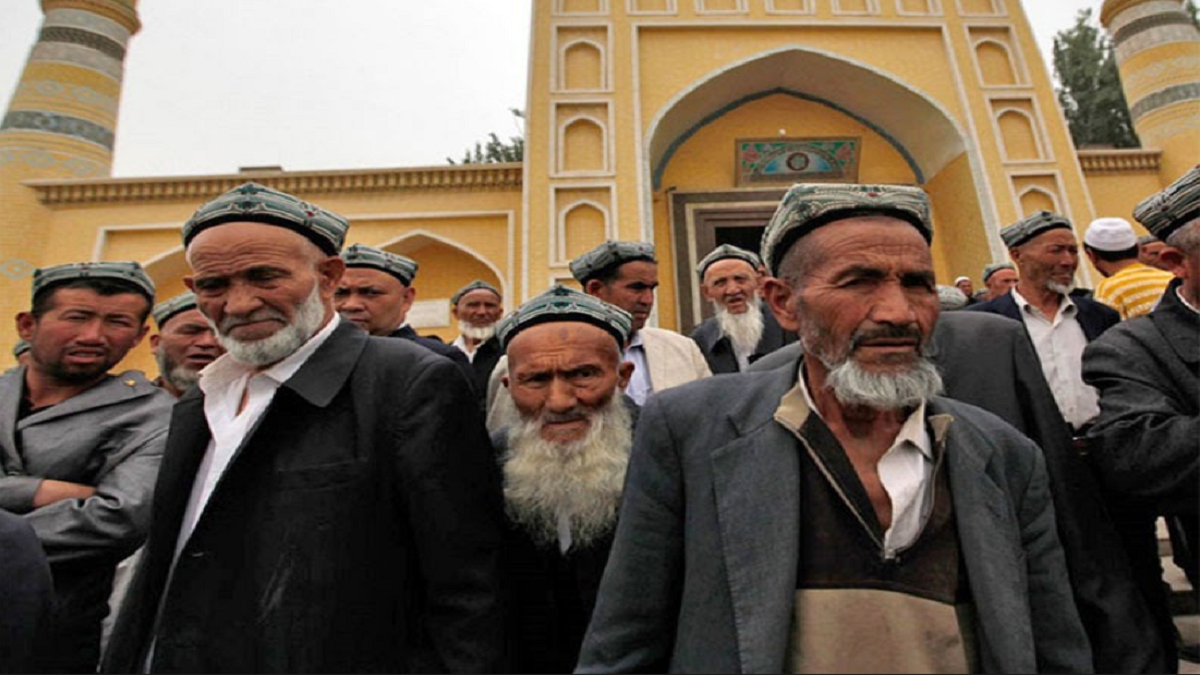What has happened in Afghanistan one week ago is a bad omen. Islamists have now started bombing mosques, and are started killing innocent civilians. This alarming situation needs serious introspection.
A huge explosion had ripped through a crowded mosque in Kabul killing 21 people and injuring more than 33 persons. All this happens after alien forces have withdrawn and Taliban are left to fend for themselves.
It’s been one year since Taliban are struggling to run the government. They are determined to govern on the principles, which are not acceptable in today›s world.
Pankaj Saran, former Deputy NSA of India in a recent interview said: Afghanistan is confronted with massive problems.
First, the formation of an inclusive government. In the Doha Agreement with the US, the Taliban leadership had assured that all communities and classes would be represented. But till now the rule is basically dominated by Pashtuns and Talibs. Communities like Hazara, Tajik, Uzbek are still not getting proper representation.
Not only this, the condition of minorities there is pathetic. Especially people of Sikh and Hindu community have had to migrate from there. Human rights violations are a big concern. The women have also not got equal participation.
The second challenge is to control terrorism and extremism. The manner in which the US killed Al-Qaeda chief Al-Zawahiri indicates that the Taliban has still not been able to control the activities of terrorist groups like Al-Qaeda and ISIS in Afghanistan.
The third challenge is to overcome economic and financial difficulties. When the Taliban took power, Afghanistan plunged into economic difficulties. Within a year, the financial condition has further deteriorated.
Along with difficulties like drought and unemployment, the crippling banking system and dwindling foreign exchange reserves are also making life difficult.
The fourth challenge is to gain international recognition. Of course, countries around the world are still looking at Afghanistan with hope and want to advance the bilateral relationship according to their respective interests, but there is no recognition of the Taliban government. The United Nations has not allotted a seat yet.
If Taliban were practical, then they would have realized that no country in the world runs completely according to the Islamic principles. Muslim dominated countries have taken a practical approach and have only adopted the spirit of Islam in their laws and governance practices. Iran is a different model of governance altogether.
The sooner the Taliban open up to the world, the better it is for Afghanistan. Today no country can stay in isolation. All countries need assimilation of ideas and its people need to respect the tradition and values of other people living in the country. Only then the progress is possible.
Even Taliban are considered to be fundamentalists, but their fundamentalism appears to be much less in intensity when compared with the ideas of the ISIS and Al Qaeda.
They need to delineate themselves particularly from Al Qaeda. Their area of influence is limited to Afghanistan, though they are trying to make some inroads into Central Asia but ISIS and Al Qaeda have bigger and more dangerous plans, which expand even up to India. Such people are reportedly behind the bombing of the mosque in Kabul recently.
Unfortunately, this ideology is beginning to have some audience in India. The police claim to have arrested Al-Qaeda operatives in Tamil Nadu and West Bengal. In the wake of these developments, Assam Government has also started verification of Imams and Madrasas in the state. More facts will emerge as and when the charge sheets are filed and the trials are taken up.
Of late this kind of ideology has assumed menacing proportions. It will take at least a generation to mitigate the damage it has done. Sultan Shaheen, a Delhi-based Islamic scholar, gave a speech in the UNHRC. In his address he said that
Islam started off as a peace-loving religion with elements of spirituality, but due to various reasons several misconceptions had crept in the theology largely between 8th and 11th centuries. This caused great damage and Islam was projected as a political, totalitarian, supremist, intolerant, oppressive, and a xenophobic religion.
The rationalists in the Muslim world were not given the importance they deserved. The works of philosopher-scientist scholars such as that of Averroes (Ibn Rushd) brought about enlightenment in Europe, which was going through the Dark Ages. But his works did not reach the center of Islamic intellectual traditions until the 19th Century.
Bomb blast in a mosque in Kabul is another wake-up call. Both Allah and His Prophet wanted Muslims to be a moderate, justly balanced community. An ummat-e-wasta, Holy Quran 2:143, says.
Countries like Morocco and Saudi Arabia are doing a good job in the understanding of the religion. So is Turkey, which has also selected 1600 hadith out of 10,000 hadith after a decade-long exercise. Those have been distributed in every mosque and religious institutions for focused studies.
The Ottoman Empire ruled a large part of the world. But even after reaching the zenith, its leaders did not change with time. In the rule of Ottoman Empire, the printing press was not allowed to be adopted in the Muslim world for almost 400 years. A heavy price was paid for this. Perhaps if the printing press had been adopted much earlier, then today the condition of the Muslims would have been different.
The point is that even the ulema who have studied from best seats of education such as Oxford believe in following the old established traditions of Islam, or at least they consider it to be wise to follow them.
In India Jamiat Ulema-e-Hind and Jamaat-i- Islami, and some ulemas of South India and Gujarat are creating an awakening with some good teachings. In countries like Malaysia, we have highly inspiring examples. For example, Sisters in Islam, an organization established in 1988. The members of this organization fought for their rights and did a wonderful job of empowering Muslim women.
Indonesia is soon going to host R20 Summit in Bali. The event is called ‘G20 Religion Forum’, or R 20 for short, it will be a parallel event to the annual G20 summit that Indonesia will host this year, and is being perceived by scholars as an effort to quell the ideas of radical Islam and extremism and promote moderatism. Indians will also be participating in this summit.
Until and unless Muslims learn to challenge the misconceptions, which have crept into the community and take corrective steps, establish good institutions, they will not be seen as a progressive community.







